2017 Could Be A Big Year For Home Automation
Well, 2016 is almost at an end and I have to say, apart from the spate of celebrity deaths that have sadly pock-marked the year, the entire Brexit campaign and that chap with the orange head being given the reigns to the free world, it’s been a pretty cool 12 months here at Best Heating HQ.
We’ve introduced a whole host of new and improved products, shown you how to paint a radiator, bleed a radiator and even celebrated the biggest and best National Radiator Day that I (or anyone else) can remember.
Yes, there’s been some great times, I’m sure you’ll agree.
But we have to move forward, not look backwards – after all if Cinderella had looked behind her and gone back to pick up her slipper she would never have become a princess now, would she? – so that’s exactly what I want to do with this, my last blog post of the year.
No, I don’t want to become a princess, but I do want to have a good look at what we can expect from home heating in 2017…
The Smart Home Revolution
From a door that will recognize your face and greet you, to home heating that can be controlled from the other side of the world, our homes aren’t just bricks and mortar anymore, they’re intelligent bits of kit in their own right.
And despite the news, earlier this year, that said people aren’t really that bothered about smart home devices, all of the more recent signs suggest that improved gadgets for the home will be the big thing to look out for in 2017.

A study of a thousand UK adults, aged between 25 – 64, by the appliance repair network Go-Assist.co.uk has found that nearly a third (29%) of UK adults will consider buying a smart home device in 2017 – now that is a lot of clever homes.
When you consider that only 3-5% of UK households currently have a smart heating device installed, that’s a pretty big leap to the next generation of home automation.
So what’s on the horizon for the Internet of Things, what’s driving us to embrace these changes like never before and what’s going to raise your home’s – and your heating’s – IQ in 2017?
The Internet of Things
The future is a place of easy living and endless possibilities, filled with a plethora of connected products that have been designed to make our lives easier, more comfortable and considerably more convenient.
Right now, if you leave work and it’s freezing outside, rather than having to wait till you arrive back at home to turn your heating on, you can simply use an app on your mobile to tell your smart thermostat that it needs to raise the temperature before you return.
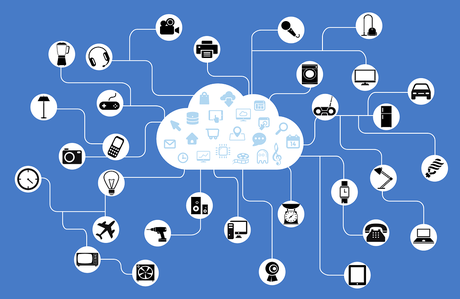
But it’s not just heating. The sheer number of new and intelligent products suggest that home automation isn’t going to be a flash in the pan, and it’s not just the convenience that smart appliances bring to our lives, there’s more to it than that.
Sure, more connected devices will mean that simple tasks like adjusting the lighting and temperature can be done without you, freeing you up to spend more time living, but beyond this smart home IoT devices have so much more to offer.
They can help to save you money and conserve energy, reducing the cost of your heating and lighting by using programs that operate when you aren’t around – turning the heating off when it’s not used and switching off lights when you leave the room.
And soon (if it hasn’t already happened), you’ll be able to turn off your fridge during the peak hours of each day and even go as far as ordering food and other supplies as and when you need them.
Say, for example, you’ve entered into your phone’s planner that Grandma Karen and Grandad Jimmy are coming round this evening, your connected fridge will tell your phone that you’re running low on milk and remind you that Karen has a fondness for scotch eggs.

It will then order that food for you and provide you with a list of available outlets where you can get the best deals on sausage wrapped poultry goodness.
Ultimately the aim of the game is to make life more efficient for the user, with a little environmental awareness thrown in there for good measure; maximum comfort and minimum cost to you and the world around you – it’s also great if you’re really bad at remembering stuff!
So What ‘Things’ Can You Start To Automate?
Automation isn’t really new.
In years gone by there were relatively simple automation options available – lamp timers, automated lighting for when you went on your jollies and who could ever forget the ‘Teasmade‘? – but now there is a huge range of possibilities.
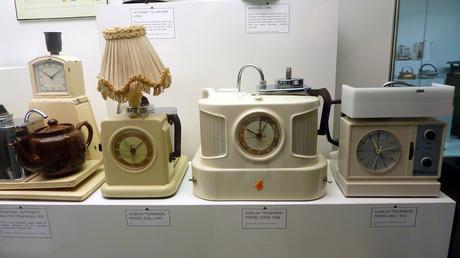
The best way of figuring out what automation may be the most relevant to you is to try and imagine a typical day that you have at home – that shouldn’t be too hard.
What devices do you regularly turn off and on?
Do you take the time to adjust your home’s environment depending upon what you’re doing at any given time?
If you have regular habits, that involve the use of some sort of device, those tasks (however mundane) are the primary candidates for automation.
So getting an idea of what might suit you in a ‘smart’ home is really just a case of figuring out what is most important to you and choosing your poison from there.
Some of the more popular categories for home automation can be found in home security, kitchen automation, lighting, and of course, heating (climate) controls.
But dig a little deeper into the increasingly creative world of the IoT and you’ll come across gadgets that promise nothing short of the earth and everything in it.

There’s self-feeding and self-cleaning fish tanks, mattresses and gadgets to help you get a better night’s sleep, devices that have been designed to revolutionise your home entertainment and even a gardening tool that not only tells you when you need to water your plants, but also gives you an indication of soil quality, whether there’s enough light and when you can expect a plant to start flowering.
Of course, as with most gadgets, there’s a distinct novelty factor about some of these, but if you’re a keen gardener or a lazy fish owner then automating something you care about might be worth a little extra consideration.
What About Heating Automation?
Of course, this wouldn’t be a Best Heating blog if we didn’t discuss the range of heating automation available. But what exactly is heating automation?
Well, we’ve long been able to control the workings of our home heating via a thermostat, but that’s quite a long way from automated isn’t it? You have to get up from your chair to adjust it for starters.
But thermostats are a good place to start when it comes to automating your home heating.
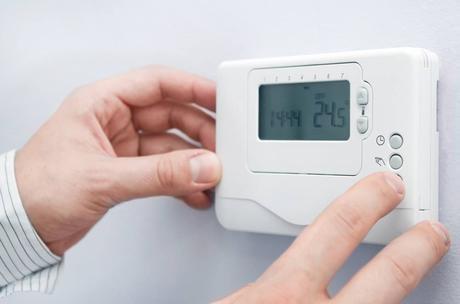
Programmable thermostats are ten-a-penny these days, you just enter a schedule that’s consistent with when you expect to be in or out and you’re away.
New and improved smart options are emerging all of the time, each offering greater and more refined customisation, that helps you to improve your comfort while saving you money.
Yes, programmable thermostats are a type of automation, but they aren’t really classed as the ‘smart’ type.
This is because they don’t have the ability to adapt to a changing schedule – you still have to manually adjust them if at any time you feel you need to tweak the settings.
Smart tech thermostats – particularly models like Nest Learning Thermostat and the Honeywell WiFi Smart Thermostat – are each attempting to give you far greater control over your home environment, offering Wi-Fi integration, mobile apps and even intelligent sensors that can tell if you are at home or out on the town.
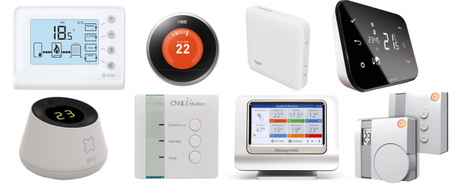
The great thing about this type of smart home thermostat is you can get hold of them yourself, without having to get in touch with any dealers or people trying to sell you the kitchen sink.
They are readily available to buy alongside more traditional options in many big retail stores and online, making these smart versions a relatively easy upgrade to make.
Is Smart Heating Even Worth The Money?
Before I can answer that question for you, it’s important to remember that there are several different factors that will affect whether any smart meter will save you money on your bills and be anywhere near worthwhile.
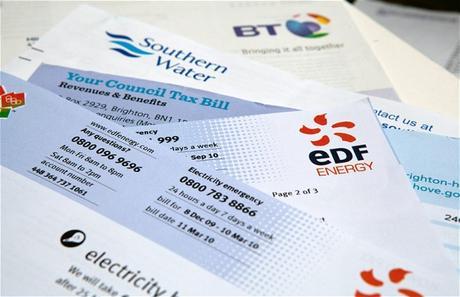
These reasons range from which system you choose to install and how you intend to use it, to how well insulated your home is, the type of boiler you have and whether your system is completely clear of sludge.
So, who will actually save money and who won’t?
You probably won’t save anything if –
- If you’re a forgetful sort it’s probably not for you, as you may not remember to remotely switch your heating on and off.
- You’re a technophobe and aren’t a big fan of mobile devices and computers – although if you go for a ‘learning’ thermostat (like NEST) you’re less likely to need to use a computer.
- You intend on moving house in the next couple of years. If you do move, chances are you won’t have used the system long enough to recoup the cash.
- If your home is inadequately insulated. Get that sorted before you even consider investing in smart home heating tech.
You’ll definitely save money if –
- You are the type of person that wants to see ‘exactly’ how much heating you use and what it costs.
- You love tech and are comfortable using mobile apps and devices (you need to be that way inclined to make the most of it).
- Anyone with a busy lifestyle that wants to control things whilst on the go
- If you have a regular routine – controllers (like Nest for example) have the ability to learn your routine and keep a track on when your home needs to be warm.
- If you own your home and don’t intend on moving in the near future – that way you’ll recoup the costs of the installation.
If you really want to save money on your home heating, the best recommendation that I (or anyone else) in the heating industry should be making is to ensure that your home is insulated up to the eyeballs.
As well as insulating properly – in the loft, behind radiators and around windows and doors – you should take a look at whether you are getting the best and cheapest deal from your energy supplier.
Perhaps making a switch could be a good idea. So if you haven’t looked at changing your supplier in a while, make sure you do that before going for any smart tech.
When Will The System Start Paying Me Back?
There are many claims from different manufacturers about the amount of money you’ll save and how and when various devices will start to pay for themselves.
But the level of accuracy contained in each claim depends upon a couple of different factors.
For example, Tado claims on their homepage that with them you can save up to 31% on your heating costs, and that their £239 thermostat “will pay for itself within a year”.
Netatmo – the consumer electronic specialists – assure us that their smart thermostat will help to reduce the energy the average home consumes by a staggering 37%.
And the British Gas mantra for their Hive smart thermostat is that it ‘could save you up to £150 a year on energy bills“.
Now, these all sound superb. They’re each promising to lower bills and save you cash to spend on other stuff, but the problem is that every last one of these ‘estimates’ (because that’s exactly what they are) make the assumption that you already set your heating system to maintain a constant temperature throughout the day.
They are taken from a set of figures that only considers the best case scenario, assuming that the user has already taken steps to move towards home automation.
So, regardless of these claims, if you’re already in the habit of switching your heating off when you leave the house, you’re MASSIVELY unlikely to save anywhere near what these manufacturers claim.

Could You Actually Pay More With Smart Heating?
It’s obvious therefore that a lot will depend upon how you already use your heating.
According to Which?, a study undertaken by British Gas states that the savings you can make with Hive will be considerably smaller if you only have your heating on for part of the day.
Not very ‘smart’ if you ask me.
Apparently, the study also reveals that in a scenario in which the heating is only used for a few hours a day during the week (weekdays), using Hive’s schedule would actually result in you using MORE energy – in which case you’ll be spending MORE cash.
As with most advertisements and headline-making claims about products, it’s important to be wary of what it means for you personally, how you will make use of the products and how and if it will affect your lifestyle – I could claim to be a supermodel, but until you see me walking on a catwalk, it’s just another claim.
Unless you’re the kind of person that leaves the heating on at home while you’re out and about – and as far as I know you people are rare – chances are you won’t make anywhere near as much back on your bills as the claims being made.
The Future’s Bright, But Is It Automated?
It’s hard for anyone to really say just how many homes will start using smart tech in 2017, there are lots of examples of ‘next big things’ not quite hitting the mark.
At one point in time, everyone (well everyone that worked for SONY) was supposed to be walking around with Minidisk players, but thanks to mp3 players, that never happened; so it’s worth keeping in mind that not all predictions come to fruition.
When I was a kid there was Betamax and VHS vying for the top spot in our weekend entertainment slots, and then along came DVD, Blu-Ray and live streaming to usurp them – not to mention illegal downloads too!

So with that little history lesson in mind, just consider very carefully how an automated device will fit around your life, family and budget, and whether you actually even need one or not.
There’s no shame in not choosing to use one. In fact, I have no doubt that there are a few of you out there that simply refuse to get involved, and that’s fine, I get it.
I don’t quite see the point of any of it just yet myself, I’m more than happy avoiding all that tech at home and – in all seriousness – there is a part of me that worries about ending up like those ‘humans’ from Wall-E – never lifting a finger again and just turning into blob that has his home do everything for him (I’m almost at blob stage as it is).
But you may feel differently about smart homes.
Let me know if you do because I’d be interested to know how much of an effect smart tech has had on your life and how you live in and use your home alongside it.
As always, get in touch on Facebook, Twitter and Google+ and don’t forget to leave a comment below.
Stay Safe, Happy Heating and…


